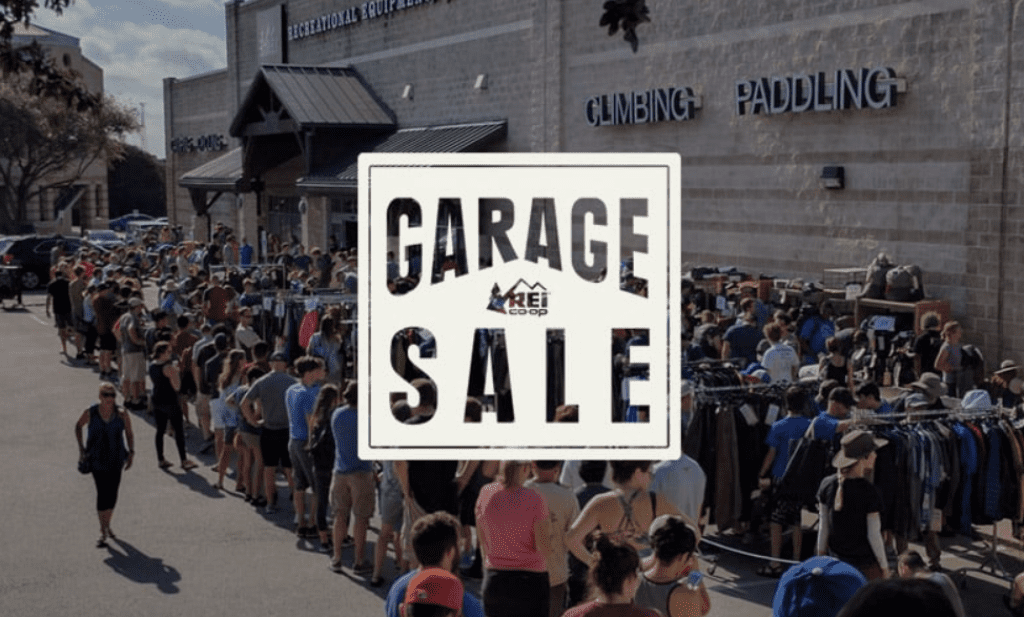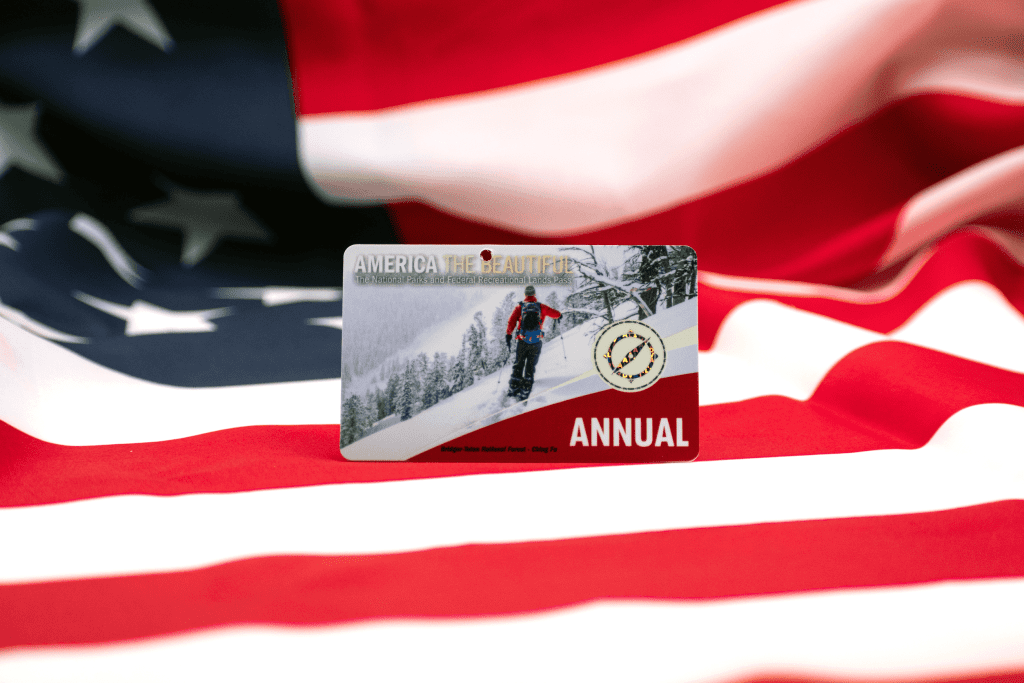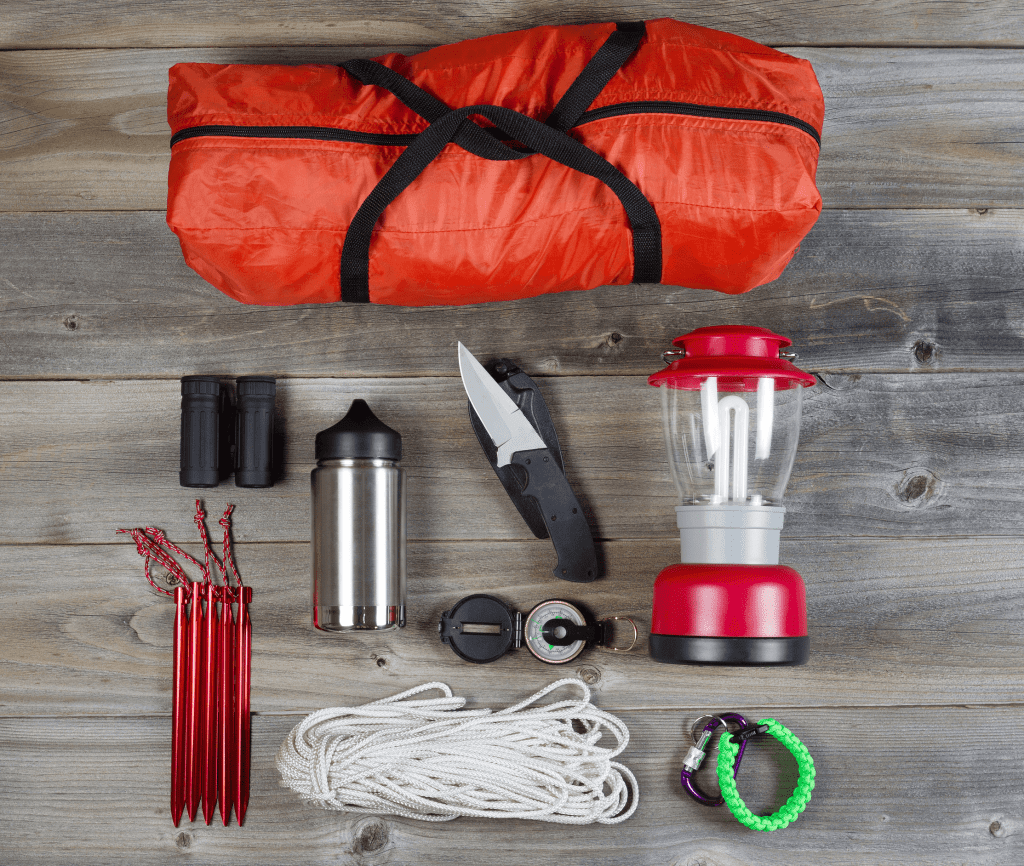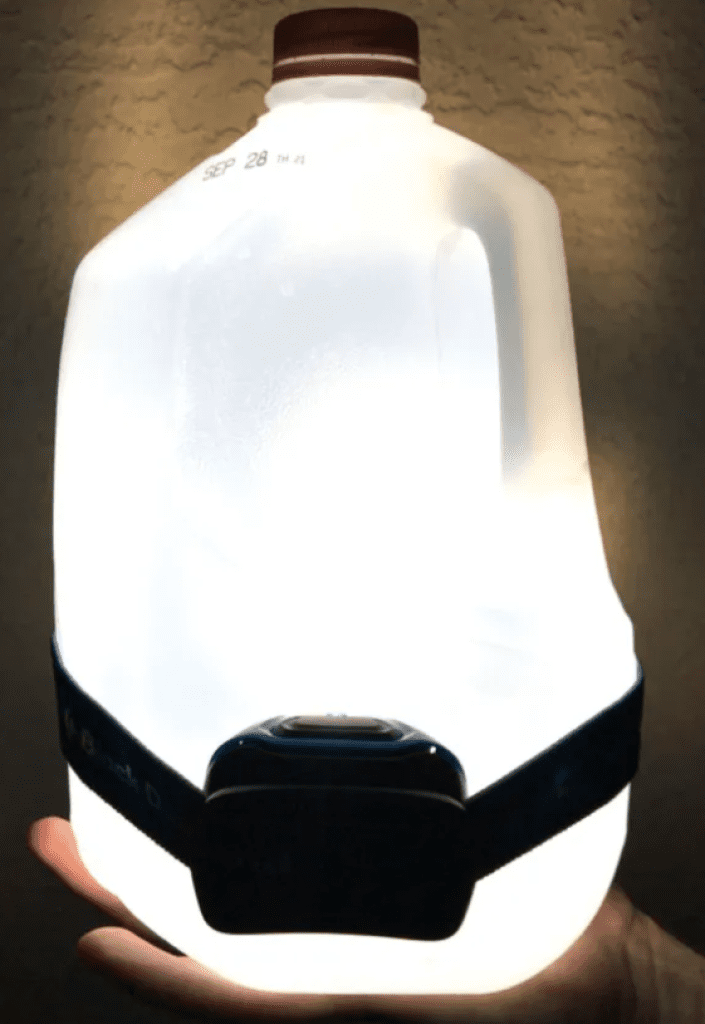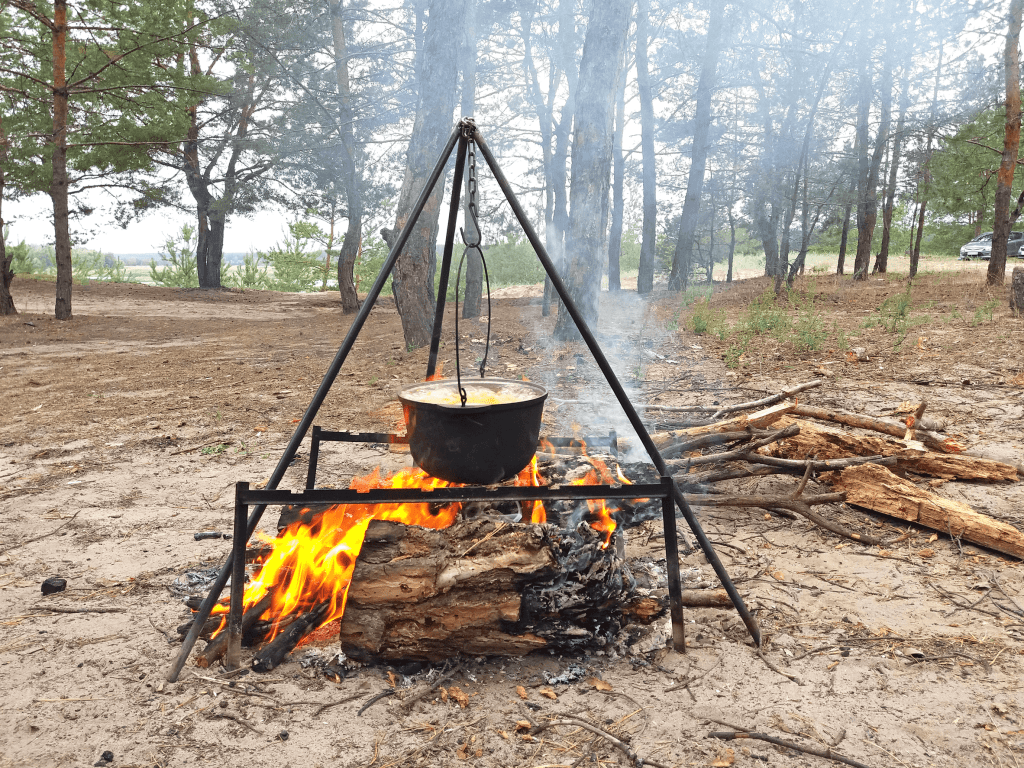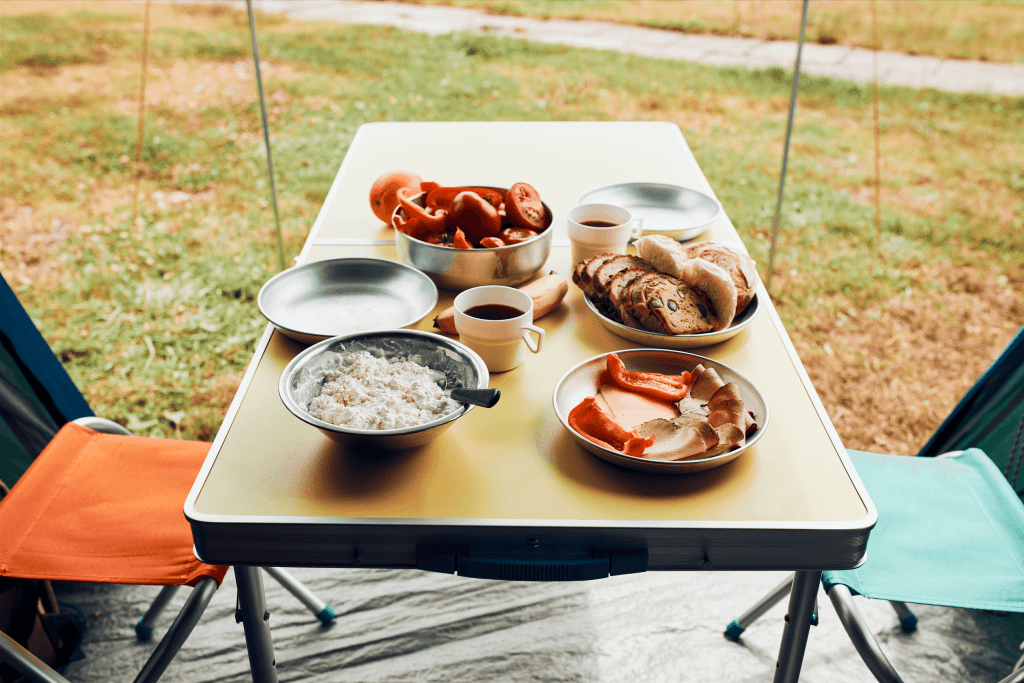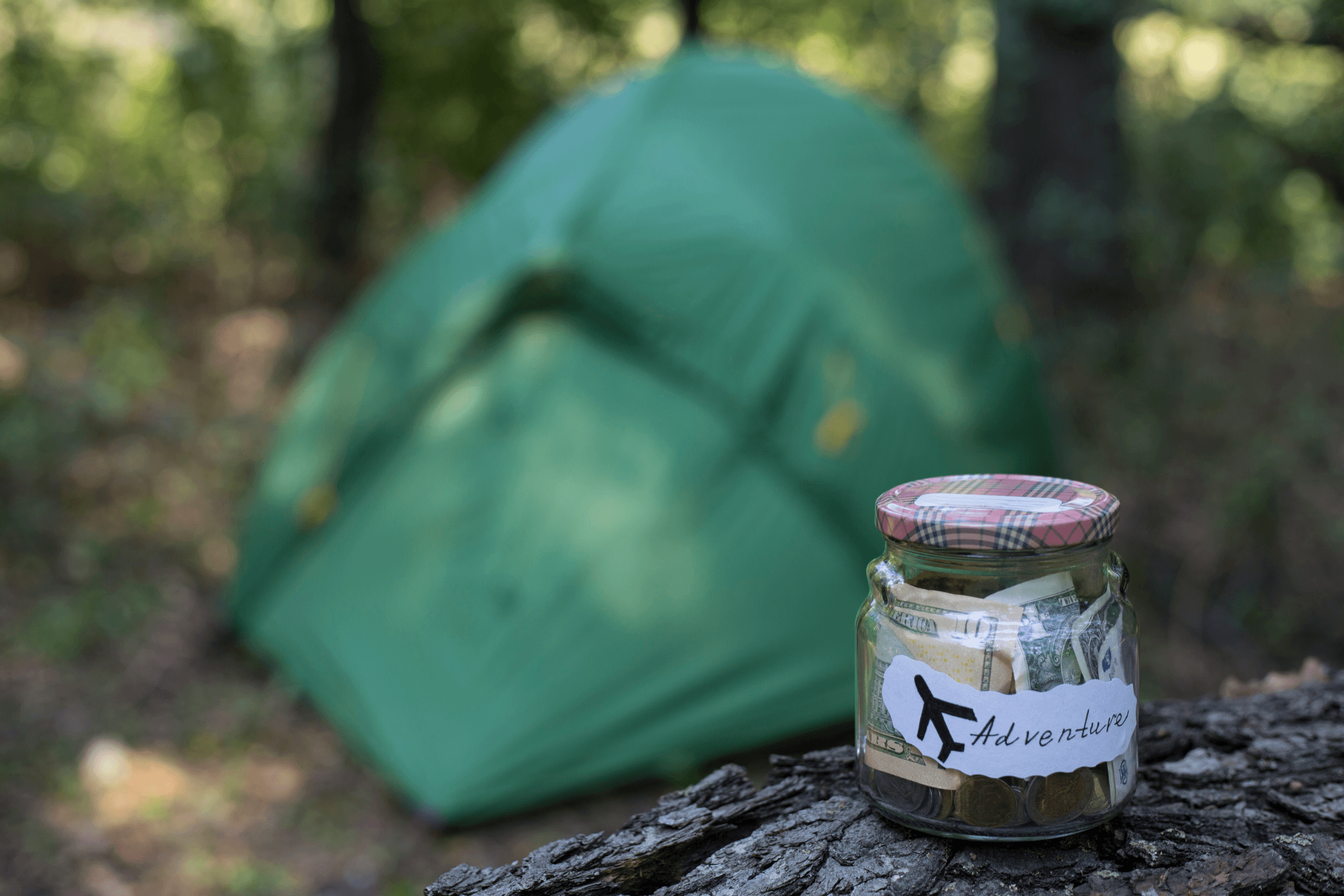
Camping can be a great way to get out in nature, get some fresh air and reconnect with yourself. But, if you aren’t careful, it can get just as expensive as a big vacation. Camping requires a lot of equipment and supplies, but when you do it right, you can easily camp on a budget.
What’s the Typical Cost to Camp?
Campsites themselves are usually inexpensive especially if you get one with few amenities. You can spend anywhere from $10 – $25 per night for a campsite, but don’t forget about the equipment.
This is where the costs add up if you aren’t careful. Buying all brand new equipment at once could cost you $500+ depending on the type and brand of equipment you buy. If you use our tips to save money camping, though, you can bring the cost down significantly.
16 Ways to Save Money Camping
1. Borrow Camping Equipment

If you aren’t a seasoned camper or you only anticipate camping once or twice a year, consider asking friends or family if you can borrow camping equipment. If you don’t have anyone you can borrow gear from, rent it. You’ll pay a fraction of the price you would buy all new equipment and still have everything you need to have a fun and safe trip.
2. Shop the REI Garage Sale
If you’re an REI member, you have access to the REI Garage Sale which is a clearance sale of all things outdoors. Stock up on your camping essentials during this sale at a fraction of the price of the original cost.
3. Use Old Kitchen Equipment for Cooking
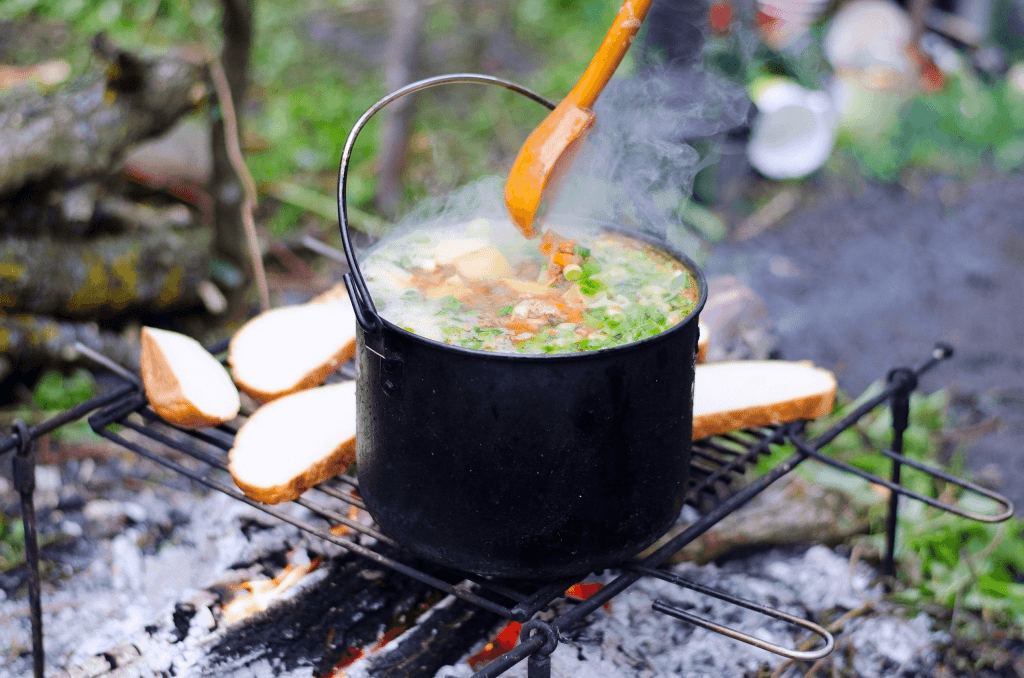
Don’t waste money buying new pots, pans, plates, and silverware for camping. Instead, repurpose the old items you have in your kitchen that you don’t use. You could probably get by with a pan or two to cook, and if you have extra plates and silverware at home use them.
If you don’t have extra, use what you have and run them through the dishwasher when you get home.
4. Buy an Annual Pass
If you and your family visit a lot of National Parks, buy an annual pass. It won’t cover the cost of camping overnight, but it covers the cost of your admission. This gives you more options of things to do when you’re camping, even if you stay off-site.
5. Stick with Basic Campsites
Some campgrounds offer all the bells and whistles making you feel like you’re in the comfort of your own home. Remember camping means ‘roughing it’, so do away with many of the amenities and enjoy nature the way you’re supposed to. Not only will you feel more at peace, but you’ll also save money on your trip.
6. Make your own Lantern
Don’t waste money on special camping equipment, like a lantern when you can make it yourself. A milk jug and headlamp make a great lantern. You could likely make several for less than the price of purchasing one lantern.
7. Meal Prep at Home

Before you head out, do as much of the meal prep as possible. Chop up fruits and veggies, portion out the meat, and make sure you have enough meals planned for the duration of your trip. The more work you do before you leave, the more likely you are to eat the food you bring and not opt for convenience and eat out.
8. Split Meal Duties with Fellow Campers
If you camp in a group, assign certain meals to each person. Everyone can buy food for their assigned meal in bulk. You’ll usually save more money buying in bulk and on the meals you don’t have to provide.
9. Use the Campfire to Cook
Sure, it may feel more convenient to bring a portable stove to cook your meals, but it costs more money and takes some of the fun out of it. Instead, go the old-fashioned route and use the campfire to cook your food, and of course, don’t forget the marshmallows.
10. Keep your Meals Simple
Don’t try to impress anyone with your Julia Child’s cooking skills while camping. Instead, keep it basic with protein, vegetables, and grain. Think of traditional campfire foods like burgers and hotdogs, corn on the cob, and roasted veggies. Save the ‘fancy stuff’ for when you’re at home.
11. Consider Including a Meatless Meal or Two

Camping is all about burgers and hotdogs, but the cost can add up when you have meat at every meal. If you’re camping for several nights, include a meatless lunch or dinner throughout your time to save money. You can find delicious and easy recipes on Pinterest.
12. Plan Free Entertainment
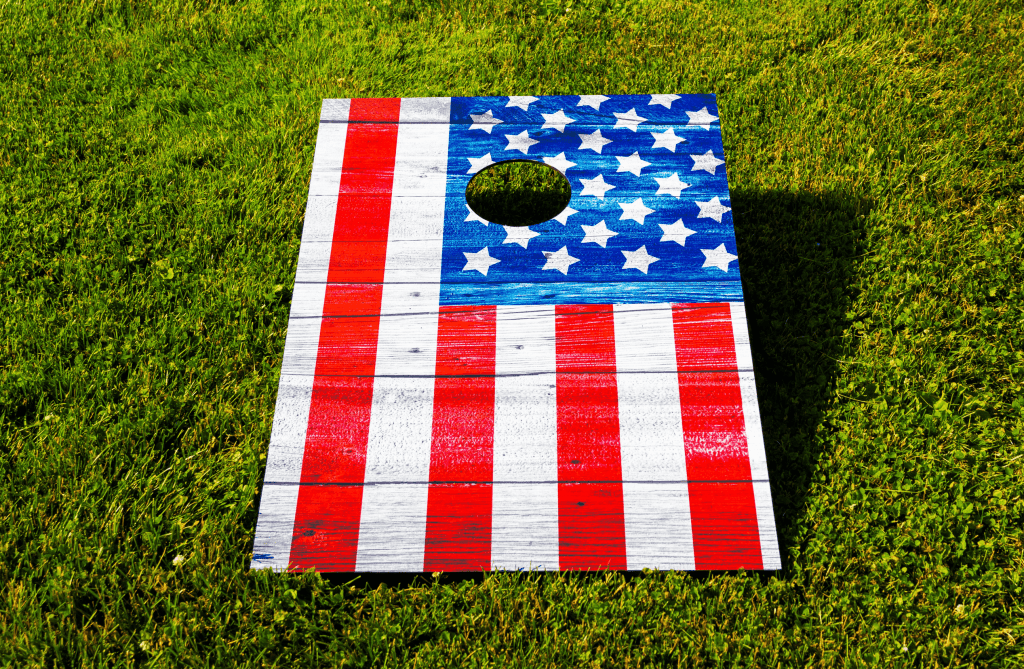
When the kids are tired of sitting around the campfire and are too tired to hike again, you’ll need a backup for entertainment that doesn’t cost anything. Bring out old favorite board games, look up great card games, or bring any yard games you already have at home like Cornhole or Ladder Ball.
13. Repurpose Old Bedding and Towels
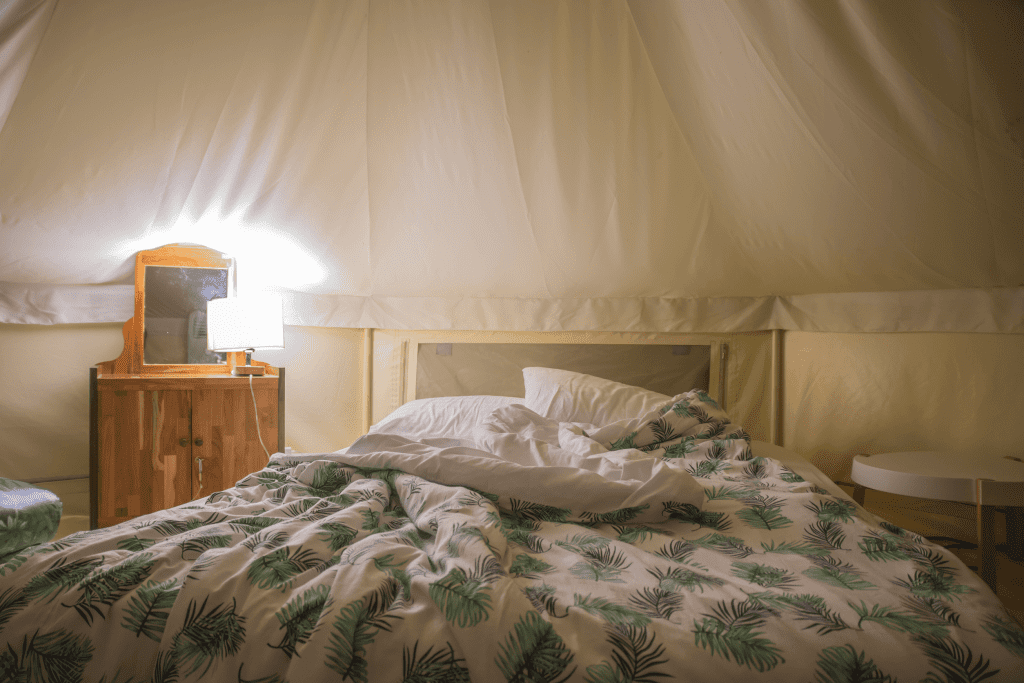
Don’t waste money on new bedding and towels to camp in the great outdoors. Instead, use those old blankets and towels collecting dust in your closet. Make them your camping bedding and towels so you don’t have to worry as much about what happens to them and you’ll save money since new blankets and towels can be costly.
14. Bring your own Firewood

Firewood is necessary to camp and campsite owners know it. If you forget firewood, you can buy it from the campsite owners or local store, but expect to pay double or triple the cost. Instead, bring your firewood from home and save the money.
15. Find Free Campsites
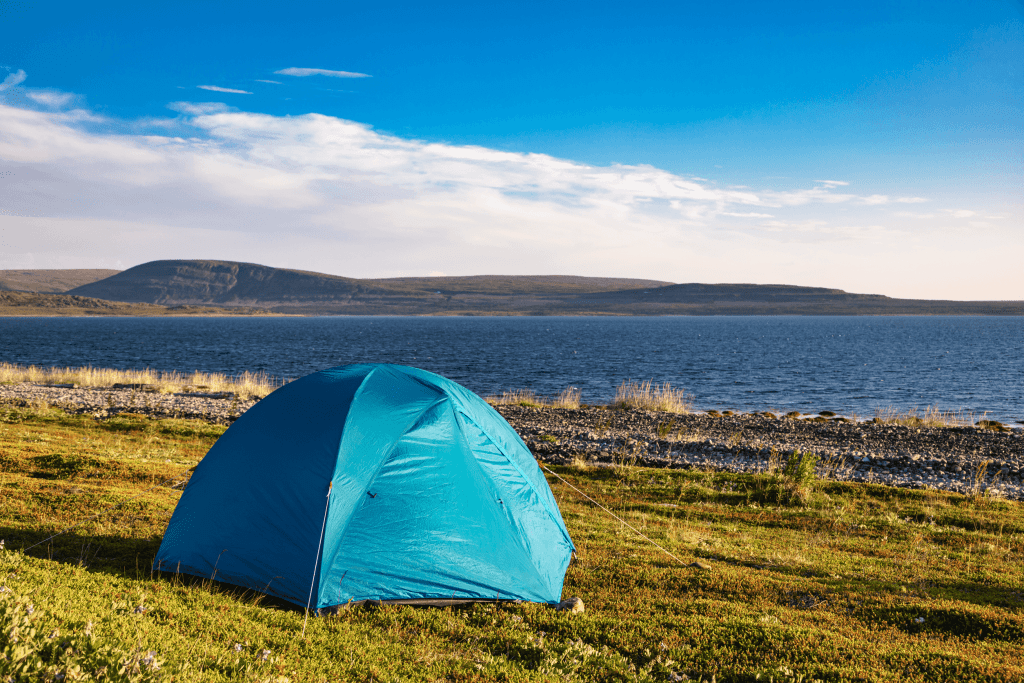
Believe it or not, there are thousands of free campsites throughout the US. Use a site like Free Campsites to find free options in the area you plan to travel.
16. Scope out your Local Dollar Store

Dollar stores can be a treasure trove for campers especially if you have kids. Glow sticks, sparklers, water balls, outdoor toys, and even plates and silverware can all be bought for $1.
Other Ways to Save Money Camping

Do your Research
Before you head out camping, do your research. Find the cheapest campsites in your area or the area you want to camp. You may find that right next to a more expensive campsite is an affordable one and you can use the amenities of the ‘nicer site.’
Some campgrounds offer discounts for longer stays too. It never hurts to ask.
Plan your Trip
Even though you could jump in the car in the spur of a moment and head out camping, don’t. Instead, have at least a few days to plan your trip and to make a list. When you have time to pack and think about what you need, you’re less likely to forget items and be forced to pay high prices for them for the convenience of buying them in the middle of nowhere.
Stock up on Camping Gear Throughout the Year
Instead of buying gear only when you need it, keep an eye out for sales year-round. Take advantage of off-season sales and get the gear you need at a fraction of the price. Keep a running list of items you need and/or a wish list and knock items off your list for a fraction of the price.
Skip Camping on the Holidays
Labor Day, Memorial Day, and Fourth of July are all favorite camping days. Don’t follow the crowd and camp on those weekends. Not only will it be harder to find a campsite, but it will also likely cost you much more money. You’ll have a more peaceful trip when you camp during off times.
Camping on a Budget FAQs
How much should you budget for camping?
If you don’t have any camping equipment yet, you’ll need a much larger budget than if you already have the equipment. If you shop used or borrow equipment, you could get away with a $500 or so budget for your first camping trip. Once you have the essentials, you can usually get by with under $100 if you meal plan correctly.
Is camping cheaper than traveling?
Camping is a form of travel, but it can be much cheaper than staying in a hotel and/or flying to your destination. You’ll likely travel a short distance to camp and a campsite costs a mere fraction of what one night at a hotel typically costs.
How much should you pay for a tent?
How much you should spend on a tent varies, just like it does when you buy a car. No two families have the same needs for a tent. When you shop for a tent, make sure it’s large enough for your family and has the amenities you need. You can find tents for as little as $50 and as much as $1,000 or more.
Is it worth spending money on a tent?
If you camp frequently, a tent is a great investment. It keeps you warm and dry, not to mention safe while you sleep. If you camp infrequently, though, consider renting a tent or asking a friend or family member to borrow one so you can see if camping is right for you.
Final Thoughts – Camping on a Budget
Camping on a budget is possible, you just have to think outside the box. We are all programmed to buy everything new and plan for every possible emergency.
What if instead, you relaxed, borrowed equipment and only brought the necessities? You may have a more relaxed time camping and enjoy the benefits of such a wonderful time away.

